It’s time to stop using an outdated and derogatory word to define a cleft lip.
While waiting for my mother to pick me up after school, I would hear the taunts from the other kids: “Hey, monkey face, I’m talking to you!” “Your mother had sex with a monkey.” “No, her mother had sex with a rabbit; that’s why she has a harelip!” “Yeah! Look at her harelip, just like a rabbit.” The bullying was relentless. Not a day passed when I didn’t hear those hurtful phrases. Yet, among all the taunts and offensive terms the kids would yell at me, the most hurtful word was harelip. It was an easy word for kids to say repeatedly in a taunting, singsong, and cruel manner. Even the doctors and medical professionals used it to refer to my cleft lip!
“Hey, monkey face, I’m talking to you!” “Your mother had sex with a monkey.” “No, her mother had sex with a rabbit; that’s why she has a harelip!” “Yeah! Look at her harelip, just like a rabbit.”
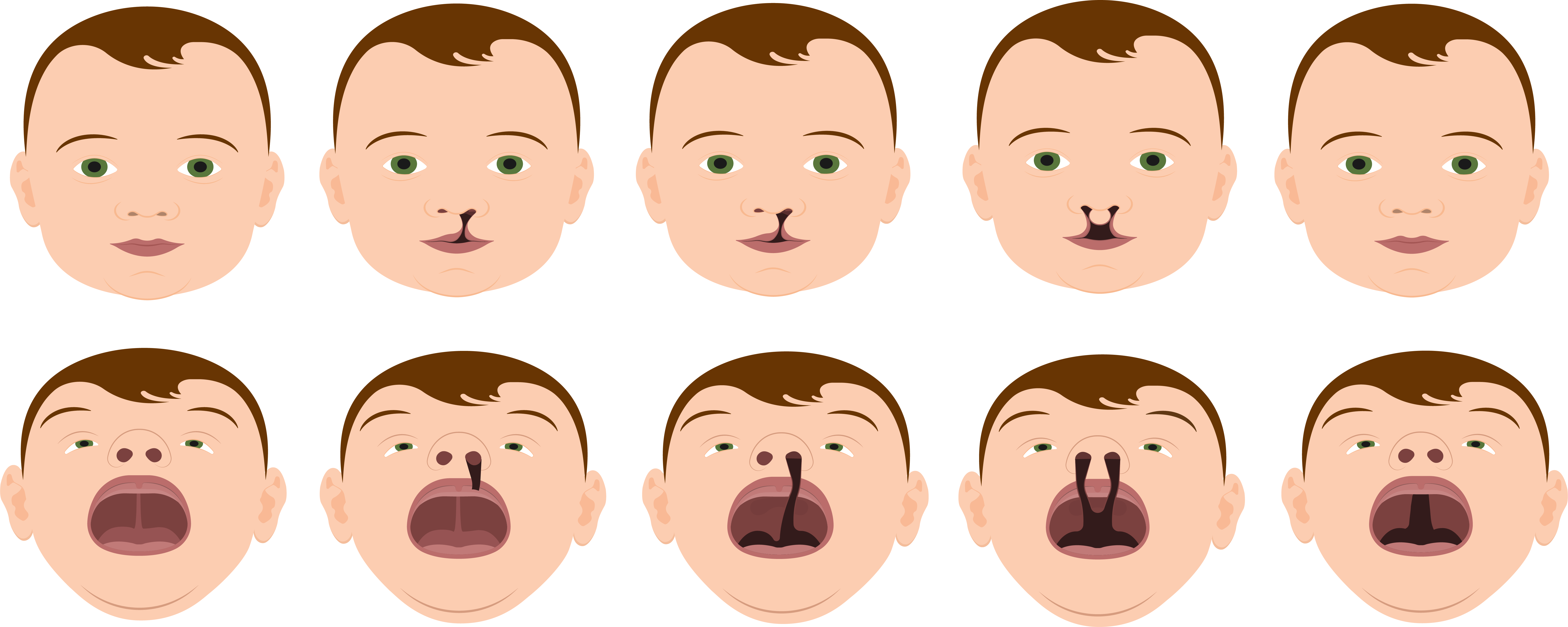
(L to R) Normal lip and palate, Unilateral cleft lip and normal palate, unilateral cleft lip and palate, bilateral cleft lip and palate, bilateral cleft palate. (image created by author)
What is a Cleft Lip?
A cleft lip occurs when the lip or palate (or both) do not properly form before birth. This creates a gap from the upper lip that sometimes extends into the palate. The opening (cleft) can be on one side of the lip or both sides of the lip. As the image illustrates, the cleft can extend into the palate or affect the lip only or palate only. A baby can also be born with a cleft palate without a cleft lip, or a cleft lip and palate.
In the late 1800s and early 1900s, the word harelip was initially used as a medical term to refer to a person with a cleft lip and palate. However, it became so common over the years that society continued to use this ugly and hurtful word, that it eventually turned into an insult hurled at someone with a cleft lip, like me. Today, the word harelip is abbreviated as the H-word.
Using the H-Word is a Form Of Bullying
The word harelip is a derogatory slur, just like all other banned words from society. In 2020, I wrote an article about Wendy Williams mocking actor Joaquin Phoenix where she stopped just short of calling his cleft lip a harelip. Despite her use of the offensive H-word, there was minimal backlash and public outrage. Why? I imagine that if Wendy Williams used a racial slur to mock a person of color, or the R-word to describe people with intellectual disabilities, there probably would have been much more public outcry.
Calling someone's cleft lip and harelip is no different than using a slur against a minority group. Hearing or reading the H-word is highly triggering for nearly everyone with a cleft lip, including parents and grandparents of children with a cleft lip. Every time I hear the H-word, I remember the endless bullying I endured, the 20+ surgeries I had to repair my cleft lip and palate, and the social isolation I experienced. The continued use of the word perpetuates the exclusion of the cleft community at a time when society is committed to inclusion, acceptance, and diversity.
Every time I hear the H-word, I remember the endless bullying I endured, the 20+ surgeries I had to repair my cleft lip and palate, and the social isolation I experienced.
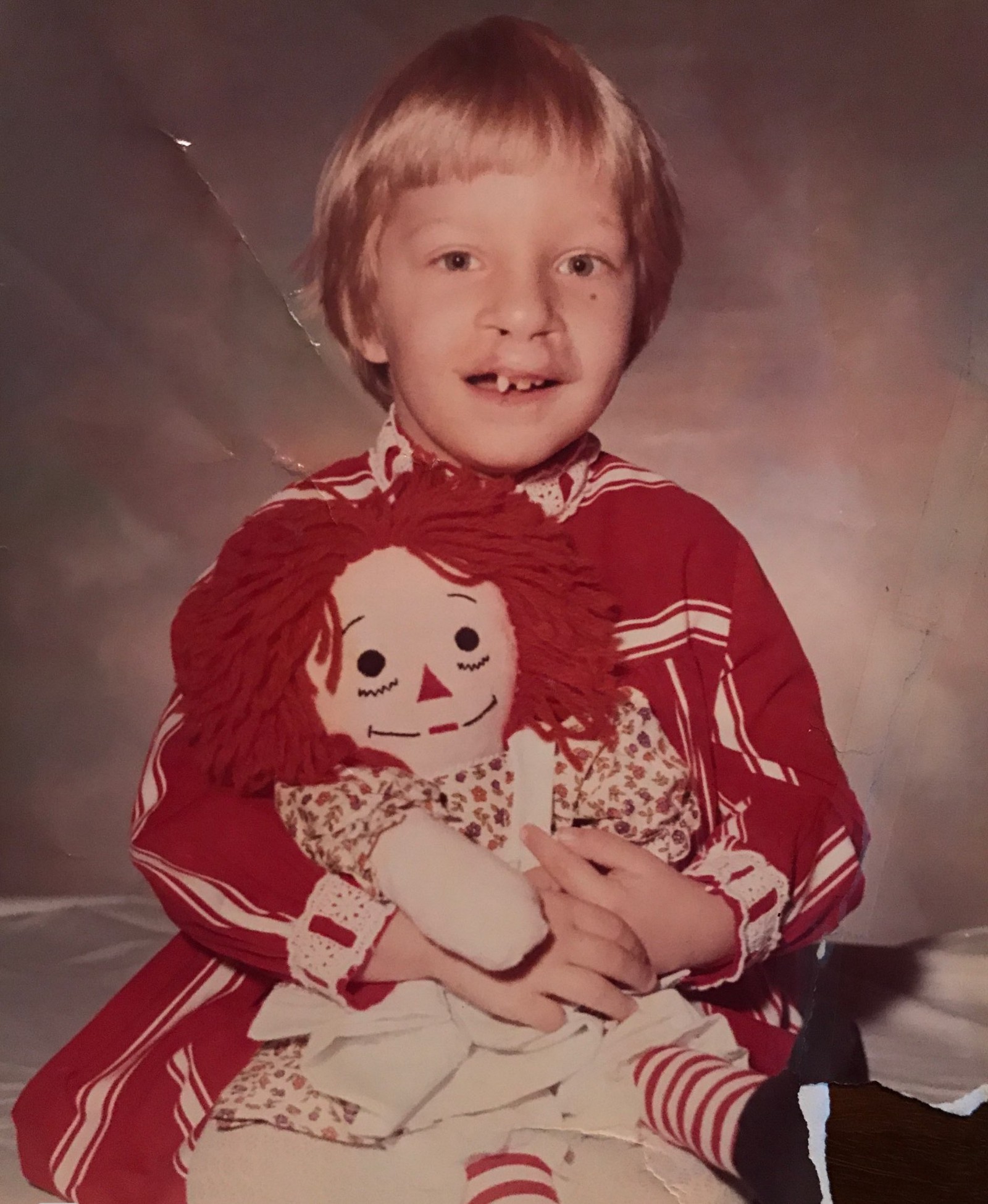
Christine Errico 6 Years Old
The Origin of the H-Word
I recently gave a TEDx talk about the challenges of growing up with a cleft lip. During my talk, I mentioned the derogatory nature of the H-word. Afterward, numerous audience members told me they had no idea how hurtful and offensive that word was. One retired nurse said, “I thought that was the proper laymen’s term for a cleft lip. I heard it all the time in the hospital I used to work in.” Another older gentleman told me, “I had no idea that word was so hurtful! My childhood friend with a cleft lip used to refer to his lip with that term all the time”.
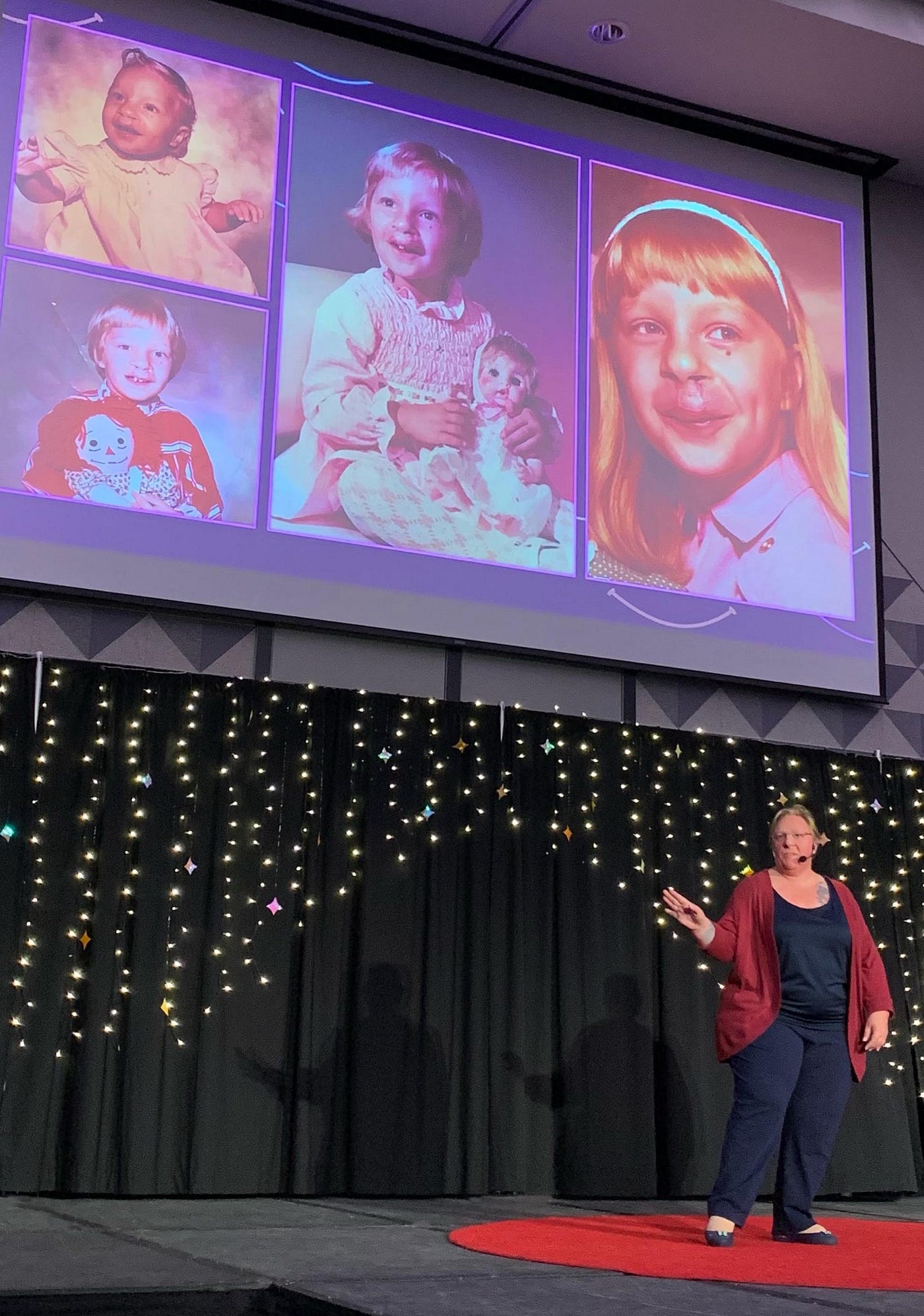
Christine giving her TEDx Talk
Generations of Folklore and Stories
The word harelip originated from variations of an old folk tale about the Moon splitting the hare’s lip. The version from Uncle Remus’ stories as well as the Hausa, Bushmen, and Hottentots version from Africa tells the story of the Moon asking Rabbit to send a message to Mankind to tell man that they will return to life when they die. However, the Rabbit does not deliver the Moon’s message properly. When the Moon finds this out, she gets angry and strikes the Rabbit, splitting his lip. In another version of the story told by the Chitimacha Indians, the Rabbit falls and splits his lip on the way to deliver the message to the Moon. In many other countries, such as Denmark, Sweden, Norway, and the British Isles, the folklore is that a cleft lip occurs when a pregnant woman sees a rabbit during her pregnancy, thereby giving birth to a child with a cleft lip, which is how a cleft lip came to be called a harelip.
Depending on where a person grew up or how old they are, many people do not realize the hurtful nature of the H-Word. Older generations of people do not perceive the H-word as derogatory. To them, they grew up hearing the H-word all the time and do not realize how offensive it is for someone with a cleft lip. For people who grew up or lived in foreign countries, the H-Word may not have the same hurtful meaning as it does for someone in the United States. I've seen numerous disagreements on social media and creating significant drama over the use of the H-Word, thereby demonstrating the misunderstandings as to the offensive nature and outdated use of this word.
The Cause of a Cleft Lip
Obviously, none of these folk tales are true. Doctors don’t know what causes a cleft lip or cleft palate. It could be from genetics, medication, environmental factors, or a vitamin deficiency. No matter the cause, a cleft lip and palate certainly is not from the mother seeing a rabbit while pregnant, the Moon getting mad at the hare, my mother getting kicked in the stomach while pregnant (another term I heard while growing up) or any of the other folklore tales or misbeliefs circulating about.
Consequences of Using the H-Word
In addition to being an incorrect term to refer to a cleft lip, there are many other reasons why the word harelip must not be used:
1. It’s derogatory
Nobody wants to be compared to an animal, especially in a negative or hurtful term. More importantly, it compounds the shame that people with a cleft lip already have about themselves.
2. It Fosters Loneliness
Think about a time you were called a negative term — fat, lazy, stupid, blondie. How did that make you feel? Alone? Ashamed? Defective? Those same feelings are what bubbles up within a person who has a cleft lip when they hear the H-Word.
3. It’s Considered Hate Speech
We, as a society have stopped the use of minority and racial slurs, as well as elimination of the R-word to describe someone with an intellectual disability. It’s time to continue the humanity by eradicating the hurtful and hateful word used to describe a cleft lip.
4. It’s Incorrect
The technically correct medical term for a cleft lip is cheiloschisis. However, it is commonly referred to as cleft lip, which is the accepted and proper term. If a person has a cleft lip and palate, then the correct term is cleft lip and palate.
5. It’s Exclusive
At a time when humanity is committed to inclusion, acceptance and diversity, people with a cleft lip and palate, like myself, are still excluded! Why is that? By eliminating the use of the H-Word, people of all ages with a cleft lip, and even future generations of babies who will be born with a cleft lip can be part of a welcoming, inclusive and safe society where everyone is accepted, regardless of their facial differences.
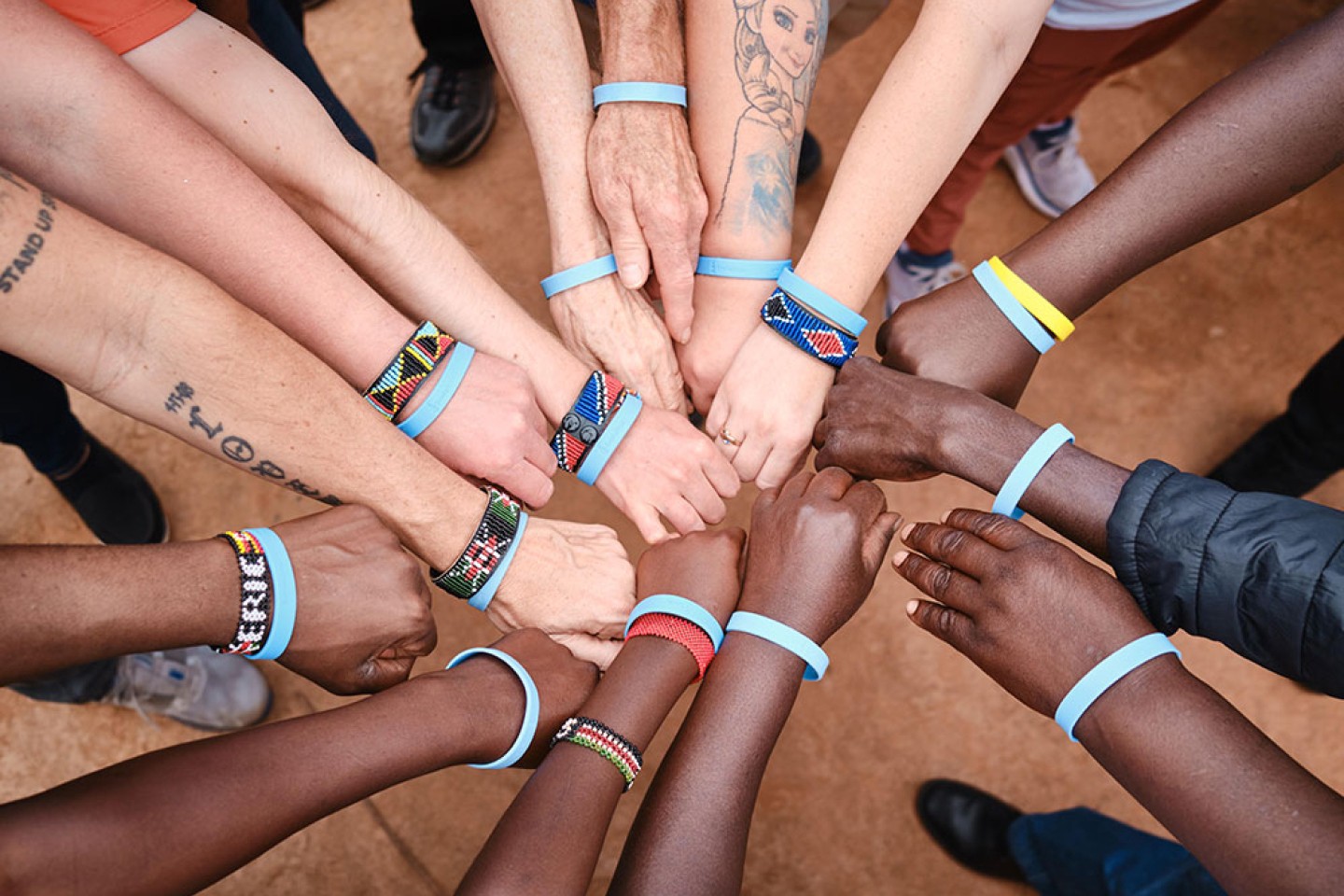
Help Eliminate the H-Word
The only way the H-word can be eradicated and take its rightful place next to all other banned words is to stop using it. Share your newfound knowledge about the outdated nature of the term. The next time you hear or see someone referring to a cleft lip by any other word other than a cleft lip, tell that personwhat you just read. Together, we can create an empowering, safe and inclusive environment for cleft-affected individuals without the stigma and shame associated with a facial deformity
